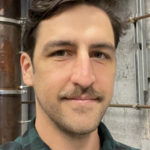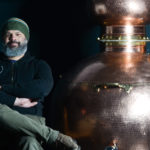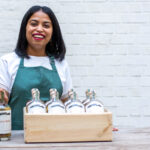JORDAN OBRY: Co-Founder – Offrian Rum (OR)
1. Who is Jordan OBRY?
Here are a few simple and honest words about the DNA of the very modest house OFFRIAN RUM (OR). Initially, we’re 2 natives of Loire-Atlantique (French Loire Valley). 10 years ago we gathered a dozen of family-owned wine-estates of the Loire Valley and we left – Muscadet (typical local very dry white wine for oysters) in the suitcase – to the four corners of the globe to promote our Loire culture to those who wanted to hear it… While I was travelling betwwen Asia and the US, Marc naturally bonded with South America, in particular Colombia, Brazil and Venezuela; where he met Arturo Labarca (Sales Executive, Ocumare Rum) – the real “padre” of OFFRIAN RUM (OR). He taught us the world of rum and about his dream of creating his own. As we were big fans of the “honey bamboo” ourselves, we got on board with what he proposed to us. He introduced us to Don Pancho (DP), a famous Cuban rum master, born in 1938 who grew up among the sugar cane fields. He has been recognized as an expert in Cuba since the 70s, emigrated to Panama, and was going to restore a distillery with a friend. We discovered Panama and, anecdote, met with the officials of the local Kuna tribe who received us with a lot of kindness. We finally conceived via DP our 2 first blends of 8 and 12-year-old that we brought back to France. Our team spent the next six years promoting and developing OR, building-up our presence whilst working on Loire Valley wines international development. Unfortunately, life is a long and winding road and it devastated us when Arturo passed away in 2017. He was an extremely knowledgeable man, both in rum and in life, rum and cigar lover with thousands of interesting stories. Since that time – which almost sounded the death knell for OR – it has been a very hard few years trying to improve without Arturo’s guidance.
In our flavor profile development, we wanted to create a “Loire Finish” rum that we aged in France in Chenin Blanc late-harvest barrels of Coteaux du Layon 1er Cru Chaume AOC (French Loire Valley sweet white wine). We have lots of interesting ideas in the pipeline we would like to reasonably introduce. A short interesting fact: all of our designs are done by hand/pencil by Luis Garcia, an amazingly talented Venezuelan calligrapher, originally a street art specialist. He has been with OR from the very beginning. For about four years now we have had the pleasure and honor of partnering with BARDINET-LA MARTINIQUAISE who gather the best spirits and rums from France and beyond such as St-James, Bailly, Depaz, Dillon, etc… Marc and I are small-town natives who became travelers, who became rum-lovers. We love to meet people, authenticity, the “good old days” and mafia movies. We always try to convey this in what we do with conviviality. We do not come from a secular tradition, we don’t preach to be the best in anyways, but we surely make rums of conviviality, ensuring a quality, which offers a good pleasure-price ratio. Rums that we have imagined particularly made to discuss, to share stories, pieces of life, bits of the road… OFFRIAN means “To Offer” in old English.
2. What does the rum mean for you? What made you fall in love with rum and when did it happen?
Parts of the answer to this question are in the origins of OFFRIAN as explained before, though to tell the truth my love of rum started much earlier. This is how rum first started to be in the picture. Marc and I grew up in the Loire Valley vineyards having “apéro” (aperitive) rather young which became a way to celebrate and to be with friends. Because we’re French – around glasses of wine first, which rapidly developed into craft spirits – local brandies from fruits (plum, Mirabelle, pear, nuts, brambles…) and of course French rums are commonly consumed. As teenagers with a little budget, we started with bottom line rum mixed in mojitos, Cuba Libre, and other classic cocktails. In parallel, our parents and grandparents are used to cook with some amber rums (crepes). Plus, it was “common” in France to go for holidays in the French West Indies (Guadeloupe/Martinique). There you can start to learn just what rum can be, what the culture behind it is, and the 50,000 other styles that it offers. What we all like particularly is how sugar cane has traveled the world throughout the past centuries and how rum (and other spirits from sugar cane) is one of the most produced spirits nowadays around the world. We view it as the spirit of travel, with a traveling spirit!
3. Three essential characteristics that define the rum according to your perspective.
Without hesitation diversity, conviviality, and sharing. I’d be tempted to add quality but there is something for every taste and it is a very subjective notion. It reminds me of a story. At the time when we were interviewing our French winemakers (everything ties to wine!) about their own stories. One of our questions was always “what has been the best wine(s) you have ever had in your life?”. Some were quoting some priceless Grand CRU they had. Yet, one of them – a very rigorous and quality-focused man – from Menetou-Salon AOC, reminds me how during the 80’s he spent a week in the middle of Amazonia with a tribe. Living completely apart from the rest of the world. The tribe, knowing that a French winemaker was about to visit them, ran to the tiny shop on the other side of the jungle where they bought very low-quality bread and wine, (as their only possible option) and one night shared it with him. The winemaker explained how this was by far the best wine he has ever had in his 65 years of life.
4. What is the most important contribution you have made in the rum industry?
Honestly, we don’t think in those terms, it would sound a bit arrogant for such a modest player like OFFRIAN to think that we have brought any contribution to something as big as the rum industry. However, apart from the aging of a Panamanian rum in Loire Valley wine barrels that has, as far as we know, never been done before, I would say maybe local inspiration. Our direct community saw how we linked what we love; the Loire Valley, wine, spirits, travel, retro style, and Latin America in one same bottle, and it – hopefully – inspires others around us. How traveling, discovering, and sharing with new friends can take you on amazing adventures for sure; but also that deciding to place pleasure at the center of everything, even work, is possible. And this feels so good.
5. Benefits that the rum industry has given you.
The wine and rum industry means, for us, a lot of traveling and therefore plenty of colorful unexpected encounters. It brought us humility, insight into who we are, and objectivity regarding how situations are in certain areas of the world. Also, what matters in life. Rum has been a spiritual adventure somehow. This wine and rum adventure has, I believe, greatly shaped the people we have become today. Thanks to this I discovered unsuspected cultures and even met my wife discovering Kazakhstan.
6. What is another thing you are passionate about in addition to rum? Why?
I won’t push again about wines, travels, and intercultural notions, but maybe focus on the retro/vintage side of things that we like. We grew up in the ’80s, in a French rural environment, spending time making tree houses and fishing, living between Louis de Funes movies, grandparents’ rotary phones, and then the Walkman and all things that we now call “pop-culture”. Now the world has changed and digitized a lot. We are still fans of the good old days and wanted to give it a space in what we do. We chose this black and white style, mafia movies, and jazzy ambiance. This is why it belongs to OFFRIAN’s DNA, a kind of homage to the past so as not to forget where we come from or how it was before. We shot two micro-movies with family and friends you can find on Youtube: “OFFRIAN or Nothing”, and “Les Tonton OFFRIAN” inspired from “Les Tonton Flingueurs (1963)” THE classical french movie of that period that represents very well our mindset.
Apart from that, I am very interested – even involved – in Greentech and especially WaterTech solutions to face climate change, the Blue and circular economy, but it is a long story…
7. What is your favorite place for drinking rum?
In general, wherever my friends or family are. If I am in a city, ideally, not more than 4 or 5 people, a cozy, jazzy, and comfy lounge bar. However, I have to say that we’ve had the greatest and funniest rum drinking moments in the countryside, along the Loire river especially. During canoeing, hiking, or on the typical boat we have there, called “toue cabanée”. It’s a kind of wooden hut (which reminds us of our childhood treehouses) placed on a large flat hull. This is THE spot to enjoy great rums with friends in the last light of the day – a beautiful mix of blue, pink, orange, and purple in the sky – before (and/or after) a delicious barbecue with the fish you’d have caught from the boat. Or the prime beef rib you’d have brought just in case you didn’t catch anything…
8. Favorite drink + Recipe
Cocktail wise: “Old Offrian” 5cl OR 8yo, 12ml Saint-James sugar cane syrup, 2 dashes Saint-James bitter, Soda, 1 orange zest.
Food:- pan-fried foie gras with apples with a 5cl glass of OR Loire Finish. – A glazed duck with honey and onions with a 5cl glass of OR 12yo is also a delicious pairing. – The classic after-meal coffee, cigar, dark chocolate combo, and a 5cl OR.
Dessert: you can cook with OR8 some delicious Cannelés. A small cake, traditionally from Bordeaux, soft and tender, flavored with rum and vanilla, in the shape of a fluted cylinder about 5 cm high and 5 cm diameter, baked originally in a copper mold, which gives it a thin caramelized crust.
9. Why is it important to educate the rum consumer?
Because rum culture is very diversified and hence complex. People have to navigate from secular traditions to new modern concepts, and everything between. It is also a big industry with all of the miscommunication possible between rum makers and the consumer we can imagine. In France, we can often observe a sort of rivalry between rums of French, English, or Spanish traditions, while they are cousins, not opponents. So, yes, consumers have to be educated enough to read between the lines, decrypt the “half-truths” as we say in French to find what they like. Product categories, level of sugar, additives, story-telling, etc… Since 2020 we have had stricter EU legislation regarding the requirements authorizing the mention of “rum” on the bottle. Among other things, it requires less than 20 gr/L of sugar and this is great progress. It filters products on the shelves and gives a clearer choice for the consumer. If you don’t fit the legislation then you lose the right to call the product “rum” (as some have) and you enter the category of “rum-based-spirits”. A good step forward for the industry.
10. Any tips to train the palate and taste a good premium rum?
I like grappa glasses (to taste not to drink), they have a good length. I also like the “Copa Seca” Cuban technique to access the core flavors. We are also obviously very influenced by our wine culture when we taste a premium spirit, I think it’s a not-bad approach. To focus on the robe first, then the nose (keeping more distance than we do for wine though), take the first sip and rather rapidly a second one (preferably with closed eyes for myself) and see what comes to mind. What feelings or memories and words that you naturally want to put on it. It’s important to take it easy (the wine industry can be very staid), there is no one truth, everyone is right in their own opinion. When someone describes the nose of a rum as the morning smell of his/her childhood “when my grandmother was baking me jam or a quince tart…”, who could disagree with that, right?
11. Is the commitment to sustainable development the key to success for the permanence of the rum industry in the world? Why?
“Sustainable Development (SD)” is an overused expression (often misused) for 10-15 years, we should first explore exactly what we are talking about here. But, generally speaking, I would say no, I don’t think so. Don’t get me wrong we are great fans of SD, the blue and circular economy, organic farming, Greentech, etc… 15 years ago Marc and I even dedicated our respective studies and wrote our theses on Fair Trade and “green” label/certification. I work in parallel on the development of an SD project related to water and its crucial place in the forthcoming 50 years. Nevertheless, the permanence of the rum industry already exists. Sustainable developments are marvelous, and more and more numerous – I am always surprised to see how creative some are – it is certainly a key factor of improvement for the industry and a direction to follow, but, to me, not a condition to permanence. Frankly, we have ideas for OR in that direction, but to do what we would like requires resources we don’t have available for now.
12. Who would you like to meet in the rum industry? What would you say to him/her?
None in particular, and all of them! We would probably say “which bottle do we open first?!”. I always have a good time when I meet people that have been in the rum industry for a long time, like 30 years or more. They have awesome stories, not only master-blenders but employees related to cane cultivation, technical transformation, salespersons, bar-tenders, and also great rum-lovers (consumers). They have seen this industry change, but they can judge and appreciate it and I like to hear their vision about that.
13. What are your next goals in the rum industry?
To pay tribute to a certain number of values, even people, which are close to our heart. We decided to have my grandfather’s pictures on the OR12yo bottle-case, using OR as a vector to express respect and gratitude is pleasant and we’ll continue that way. Similar to the Loire Finish, we hope to bring also a few more unique concepts of this kind in the coming years. Ideas are already in development but I can not tell you what it is about yet. Just note that we are offering a new product every year. For 2021 it was the Loire Finish.
14. Plans you have when you leave the rum industry.
Will I leave it someday? Who can say… But, during or after, involve me completely in the blue and circular economy and study more about water. Understand the water element more in-depth and maybe create solutions to significantly improve the way we manage it. That could benefit the sugar cane industry, which is more and more a victim of drought. We are facing catastrophic global challenges, it is urgent to do something, I would like to do my part to improve – at least a little bit – what we leave to our kids.
15. Why is the role of the bartender important in the rum industry?
It’s a classic answer but because they are our ambassadors. They stand in the exact place where producers/brands and consumers meet. They make the bond between people, they are the cement getting everyone together. The evolution of the rum industry is possible thanks to them. They are also our eyes and ears to understand our consumers. They often can combine in one same shaker creativity, diversity, passion, and conviviality; values that the world of rum must continue to defend.
16. What is your advice for new generations in the rum industry?
This is a good question. I’d tell them honestly: “It can be an extraordinary adventure that I surely recommend to you, you can have great fun and find yourself. Be curious, share with the old guys (and the less old), but don’t forget yourself. Stay true to your passions, your desires, your personality, the rum industry must remain diverse and tolerant, find your style, and bottle it. On the other hand, be reasonable, I won’t sell you Mickey Mouse dreams, it requires serious hard work and you’ll probably go through painful ups and downs. Passion is good, but too much passion is dangerous. I have seen people risking everything in their business project, and some lost everything. You must seriously analyze the market and build your strategy accordingly. The rum industry is a saturated sector with big names in it, so the battle is tough. We surely need fresh blood but you must be very aware of all that. If I’d arrived today on the market as it is, I’m telling you frankly, I won’t go.”
17. How can people learn more about you? Website? Social media page?
You can contact us without any problems in French, English, Spanish, Portuguese and Russian
- via info@offrianrum.com or whatsapp +33 618 862 661
- via:Web: https://offrianrum.com
- Facebook: https://www.facebook.com/offrianrum
- LinkedIn: https://www.linkedin.com/company/offrianrum
- Instagram: https://www.instagram.com/offrian_rum/
- YouTube: https://www.youtube.com/user/Caliandbeyond
We sponsor some initiatives related to traveling as Heron & Duval: Folk Rock & Blues band, or SteppesandBicylette a couple who decided to make a world tour by bicycle…





